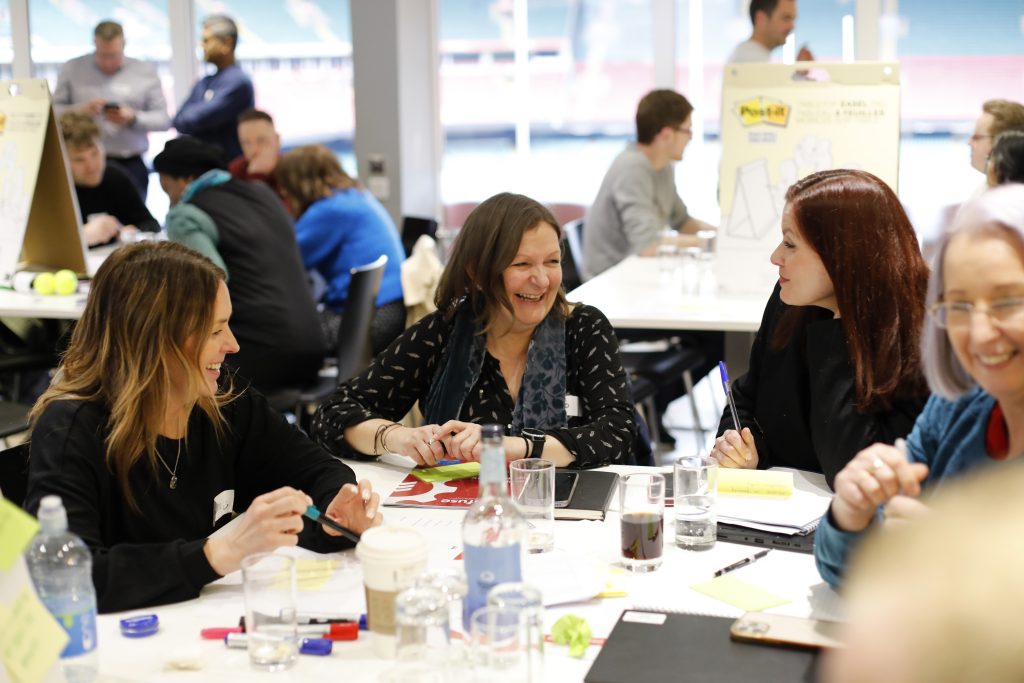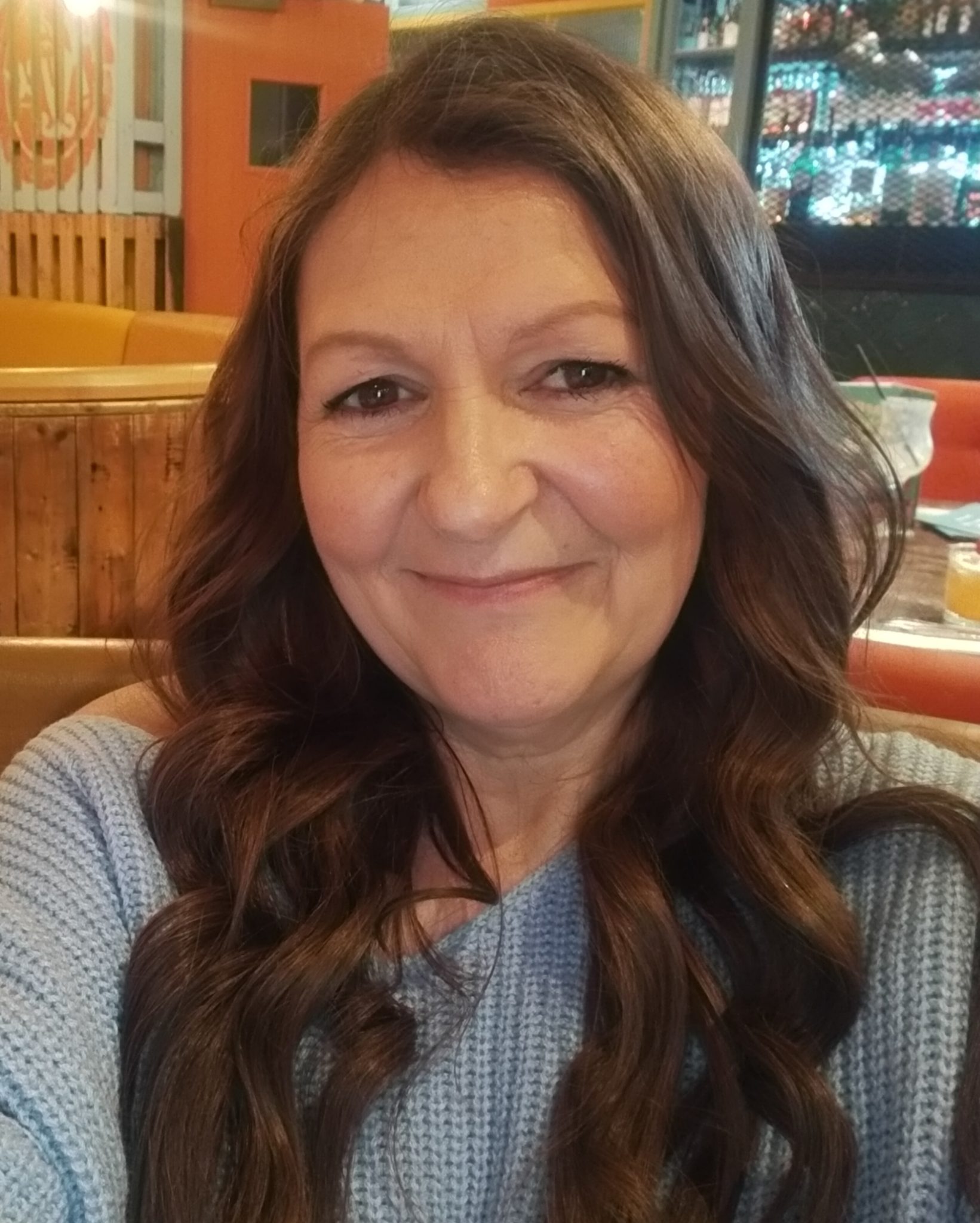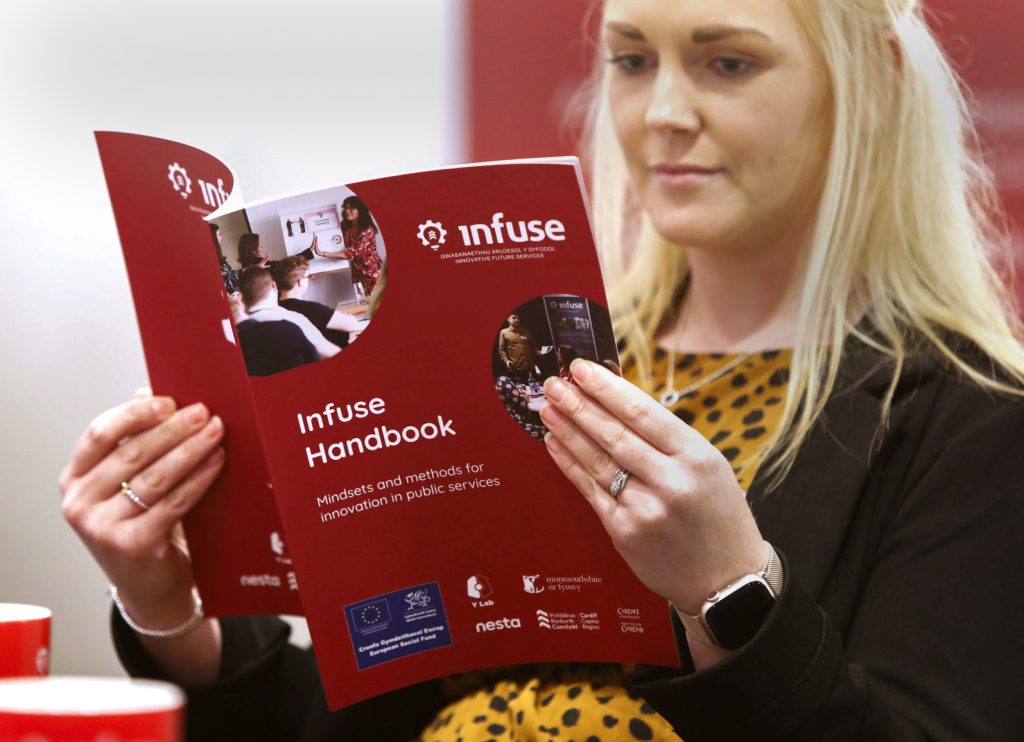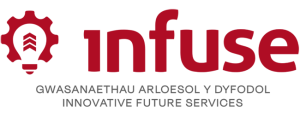
Source: Joanne Howard
Infuse Case study: Increasing engagement with SMEs to drive social value procurement.
Infuse Cohort: Three
Council/organisation: Monmouthshire County Council (MCC)
What was the overarching challenge?
One of the three key messages from the Infuse procurement lab is that ‘sustainable procurement is the key to achieving strategic outcomes’. By ‘sustainable procurement’ we mean sourcing responsibly to maximise the positive impact on people and the planet. The use of sustainable procurement in addressing social, economic and environmental challenges requires collaboration between public bodies and potential suppliers so that potential suppliers can understand the public body’s strategic sustainability goals and explore how they might best contribute towards them.
Small and Medium Enterprises (SMEs) are crucial in the development of local and regional economies. When SMEs thrive, they can act as a stimulus for the local economy, contributing to the economic growth and prosperity of their communities and reducing regional disparities.
SMEs can bring innovative and creative solutions to the table that can enable sustainable procurement and help organisations to achieve strategic outcomes. SMEs have strong connections with local communities making them more likely to engage in social, environmental, and economic initiatives. This alignment can contribute to sustainable procurement practices in yielding employment opportunities, reducing climate impact, boosting the local economy, and improving the overall wellbeing of society in Wales.
Joanne identified that in Monmouthshire, SMEs were not actively bidding for framework maintenance contracts, meaning that Monmouthshire County Council were not routinely benefiting from working with local SMEs in the ways described above. The council was becoming reliant on three main large suppliers, who could not always meet demand, leading to building managers appointing contractors independently.
We are under pressure as a Property Department to ensure that we can make contractors available to undertake works on a regular and timely basis, responding to demand and having capacity to carry out larger works on our corporate sites when required. This is not currently the case. Faith in our service has diminished and corporate building managers have begun to source their own contractors when we cannot meet demand. The effects of this can be seen with increased demand on our maintenance team to oversee contractors who have not been sourced through our framework and satisfy legislation and building regulations.
As the corporate landlord, we remain responsible for monitoring social value commitments, and overseeing health and safety on works carried out, whether these are sourced centrally by the local authority or by the building managers independently. When they are sourced independently, this becomes out of our control to an extent, causing extra work, the inability to investigate whether the company used has net zero carbon plans or whether they are feeding back into our local economy and ensuring that up-skilling within our communities is taking place”.
Which aspects of the challenge were addressed in the experiment (the research question/s)?
Through an Infuse experiment, Joanne chose to investigate:
How can we engage small and medium enterprises to improve the quality of working relationships and encourage more smaller businesses to bid for our framework contracts for maintenance in Monmouthshire.
There were two sub-questions:
- Could engagement events aimed specifically at SMEs help us to understand the barriers to them bidding for contracts?’
- Are there stages of the procurement process that are creating barriers for SMEs?
What was done to address the challenge?
There are three elements to Joanne’s experiment. Firstly, Joanne was able to gain data on the current SMEs within the CCR through Business Wales. She used this to establish a contact list which she will use for stakeholder engagement events. Such events can be an opportunity to address concerns about non-participation in tenders, collate feedback to help refine the approach to future tendering and improve the collaboration process. Joanne notes that this approach demonstrates commitment on the part of the Local Authority (LA) in fostering collaborative initiatives with the SME’s.
Knowledge gained from the engagement events will inform the second part of Joanne’s work, which is:
“Unpicking the procurement process and establishing what is statutory and what we are doing just because we have always done it that way. The aim is to make this more accessible to smaller businesses and ensure that the process is fair and equitable. “

Joanne Howard
Monmouthshire County CouncilThe third element of Joanne’s work was to establish relationships with officers involved in the process, such as the maintenance team, to ensure their needs are also being met by a revised process.
Which aspects of Infuse were most helpful in addressing the challenge?
Joanne found three different aspects of the programme particularly helpful:
(1) Data action stories – “I am using data action stories in my everyday work, as well as for the challenge. The data action story I wrote for my experiment was:
If only we knew… why SMEs are not bidding for our contracts
We could… take steps to ensure potential barriers are removed
So that… we can encourage and provide assistance throughout the procurement process.
I am also mindful of ensuring that I am accessing data that has already been collected rather than re-inventing the wheel in line with becoming a data mature organisation.”
(2) Collaboration with Past Associates – “Through the Infuse Program I got to understand that this is a regional wide problem as other LAs are experiencing similar challenges. At this point, I had discussions with two other associates from the previous cohort who are also working on a similar experiment. Their experiment is about wanting to increase the number of local businesses accessing council contracts for the benefit of the local economy”.
(3) Reverse mentoring – “I have established a great contact on our senior leadership team and revisited many of the themes and key ideas from the last 6 months to refresh them in my memory. The relationship we have formed has increased my psychological safety and enabled me to collaborate more widely within my organisation”.
The success from implementation of these practices is an individual awareness that complex problems can be looked at differently and acted on in a methodical way.

Learning from the programme, along with key tools and methods, is captured in the Infuse Handbook .
What were the main lessons from collaborative working?
Joanne notes “it can be difficult to impart new ideas and ways of working to officers who have been within the LA for many years”. I have had to ensure that they are clear in my mind before speaking to others about them so that the message comes across clearly. However, many of the tools have been implemented by previous cohorts and I think one of the main lessons is that we continue to collaborate with INFUSE alumni to ensure that the flow of information is not limited”.
“Through reverse mentoring and discussions with officers I would not normally come into contact with, my knowledge of the organisation I work for increased. Such collaborative approaches promote a culture of open communication, sharing of insights and diverse perspectives. However, each time a discussion takes place, the challenge becomes bigger with more branches that should be addressed and are linked to the initial question”.
Key findings
Joanne highlights three key findings from her work:
- We have little knowledge of our SME base within Monmouthshire.
- Framework contracts have not been reviewed thoroughly for many years and we have become reliant on 3 main contractors who are not always able to take on large works due to volumes of smaller works.
- This is an issue on a wide scale and further collaboration with local authorities and businesses is essential to move forward.
Joanne now understands that this is an issue on a wider scale and further collaboration with local authorities and businesses is essential to move forward. She adds “we have little knowledge of our SME base within Monmouthshire. The maintenance team needs to play a pivotal role in identifying SMEs they have worked with in the past and address reasons for the non-participation. I will be working towards engaging more regularly with the team and becoming an insurgent!”.
She was able to identify how the adoption of the procurement framework impacts sustainable outcomes.
“We currently use a 3-lot framework where we award 3 contractors on each section of the work we require (electrical, mechanical, and building). This limits how many contractors we can use and the areas they are situated. If we had more lots to award, we could cover a lot more land within Monmouthshire which is demographically a very large county. By specifying ideal geographical locations for our buildings, we can reduce the carbon footprint for each project carried out”.
Next steps
Joanne is passionate about her experiment and commits to collaborating with other LA’s in tackling this regional wide challenge. “I will continue to collaborate with other agencies and authorities to gain the data required to push forward with stakeholder engagement events or qualitative data gathering on why SMEs are not accessing our frameworks”.
Conclusions
To address the challenges Joanne’s case study has highlighted, authorities can begin to take proactive steps towards better market engagement that can drive sustainable procurement practices that contribute to strategic outcomes. This can include:
- Provision of feedback channels where SME’s can register their nonparticipation in tenders.
- External engagement opportunities where the LAs communicate their sustainability objectives and encourage SMEs to align their offerings.
- The possibility to redesign pre-commercial supplier engagement days.

